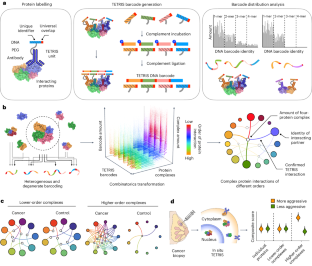20024-09-29 ミュンヘン大学(LMU)
<関連情報>
- https://www.lmu.de/en/newsroom/news-overview/news/multiple-sclerosis-early-warnings-in-the-immune-system-2.html
- https://www.science.org/doi/10.1126/sciimmunol.adj8094
多発性硬化症におけるCD8+T細胞の早期免疫代謝異常を双生児研究で同定 Twin study identifies early immunological and metabolic dysregulation of CD8+ T cells in multiple sclerosis
Vladyslav Kavaka, Luisa Mutschler, Clara de la Rosa del Val, Klara Eglseer, […], and Eduardo Beltrán
Science Immunology Published:27 Sep 2024
DOI:https://doi.org/10.1126/sciimmunol.adj8094

Editor’s summary
Multiple sclerosis (MS) is an inflammatory disease of the nervous system in which CD8 T cells are present in MS lesions, but their role in disease progression remains unclear. Kavaka et al. analyzed CD8 T cells from the blood and cerebrospinal fluid of monozygotic twins, where one twin had MS and the other showed no signs or subclinical signs of neuroinflammation (SCNI). CD8 T cells from individuals with MS and cotwins with SCNI exhibited proinflammatory immunological and metabolic features consistent with enhanced activation and migration. These findings were validated in a separate cohort of individuals with MS, providing insights into the role of CD8 T cells in MS progression. —Christiana Fogg
Abstract
Multiple sclerosis (MS) is an inflammatory neurological disease of the central nervous system with a subclinical phase preceding frank neuroinflammation. CD8+ T cells are abundant within MS lesions, but their potential role in disease pathology remains unclear. Using high-throughput single-cell RNA sequencing and single-cell T cell receptor analysis, we compared CD8+ T cell clones from the blood and cerebrospinal fluid (CSF) of monozygotic twin pairs in which the cotwin had either no or subclinical neuroinflammation (SCNI). We identified peripheral MS-associated immunological and metabolic alterations indicative of an enhanced migratory, proinflammatory, and activated CD8+ T cell phenotype, which was also evident in cotwins with SCNI and in an independent validation cohort of people with MS. Together, our in-depth single-cell analysis indicates a disease-driving proinflammatory role of infiltrating CD8+ T cells and identifies potential immunological and metabolic therapeutic targets in both prodromal and definitive stages of the disease.

